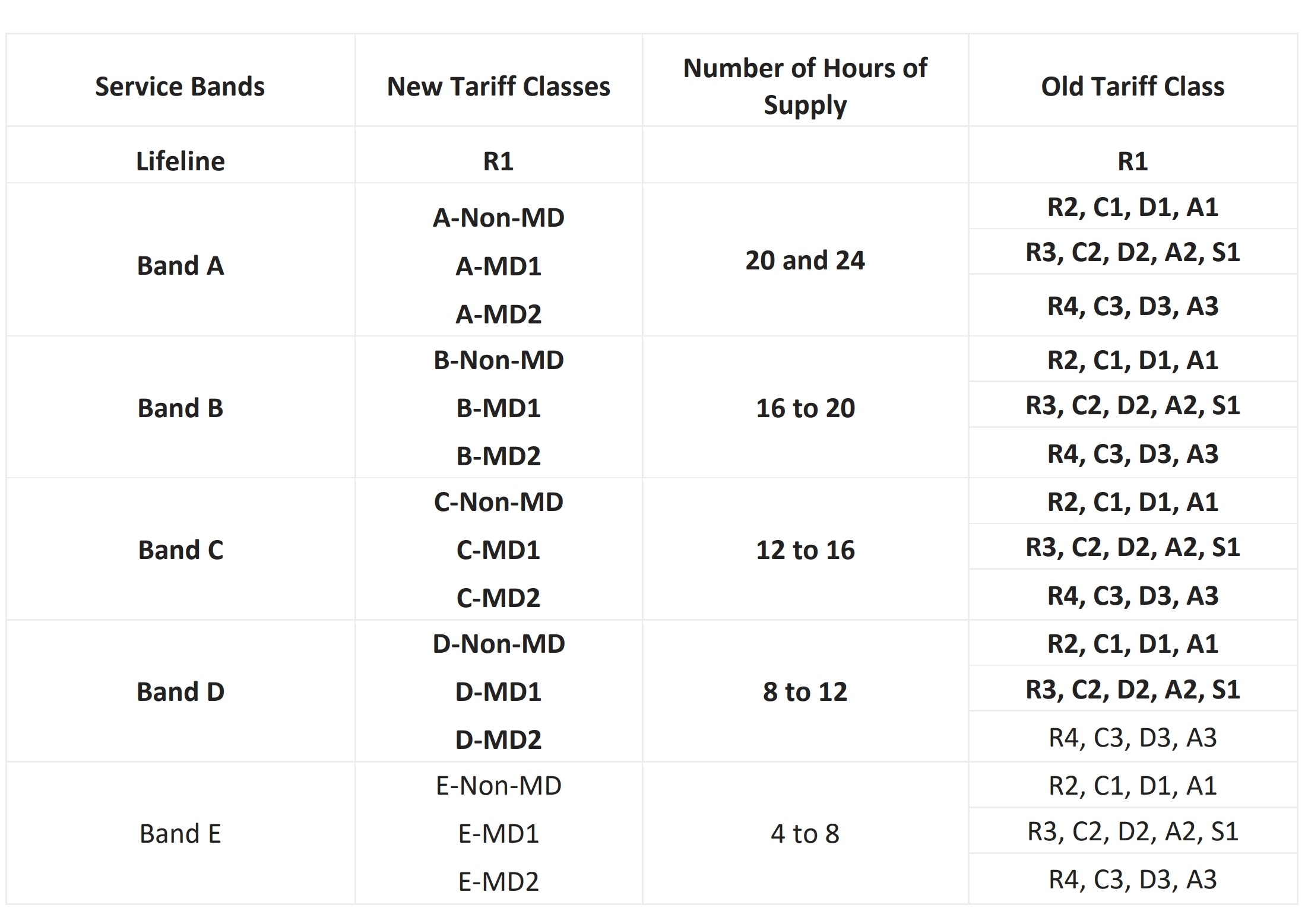Amid protests by electricity consumers, the Minister of Power, Saleh Mamman, on Thursday halted the implementation of the minor review of electricity tariffs announced by the Nigerian Electricity Regulatory Commission (NERC) on Tuesday.
On Tuesday, media reports said a 50% increase in electricity tariff was approved by the electricity sector regulator scheduled to become effective from January 1, 2021.
The reported tariff hike based on an announcement contained in the Multi-Year Tariff Order (MYTO) No. NERC/255/2020 signed by the new Chairman of NERC, Sanusi Garba, on December 31, 2020 was
Service Tariff Bands under the service reflective tariff (SRT) system, which categorizes customers into service bands based on the number of hours they receive electricity daily, those in Band A include consumers who receive electricity for between 20 and 24 hours of electricity supply per day.
Those in Band B are those enjoying electricity supply for between 16 to 20 hours a day, while those in Band C are those who receive electricity supply for between 12 and 16 hours per day.
Consumers in Band D, who have either single or three-phase; low voltage maximum demand and medium/high voltage maximum demand (11/33kV) connections, are those who receive electricity for between 8 and 12 hours; Band E are those who get electricity supplies for between 4 and 8 hours per day.
However, in denying the media reports about an approval granted to hike the electricity in tariffs in the country from January 1, 2021, NERC clarified that what was approved was a minor adjustment of the existing tariffs to reflect socio-economic realities.
In a statement, NERC said the approved minor tariff review involved the adjustment of the tariff rates for the various service bands by N2 to N4 per kilowatt-hour (kWh) to reflect the partial impact of inflation and movement in foreign exchange rates.
NERC said the adjustment was in compliance with the provisions of the Electric Power Sector Reform Act (EPRSA) and the nation’s tariff methodology for bi-annual minor review, the rates for service bands A, B, C, D and E.
Despite the adjustment, the electricity sector regulator said the tariff for customers on service bands D & E (customers being supplied with electricity for less than an average of 12 hours per day over a period of one month) would remain frozen and subsidized in line with the Federal Government policy.

The different customers’ Service Tariff Bands under the service reflective tariff (SRT) system are categorized based on the number of hours they receive electricity daily.
Those in Band A include consumers who receive electricity for between 20 and 24 hours of electricity supply per day.
Those in Band B are those enjoying electricity supply for between 16 to 20 hours a day, while those in Band C are those who receive electricity supply for between 12 and 16 hours per day.
Consumers in Band D, who have either single or three-phase; low voltage maximum demand and medium/high voltage maximum demand (11/33kV) connections, are those who receive electricity for between 8 and 12 hours; Band E are those who get electricity supplies for between 4 and 8 hours per day.
However, following protests and widespread criticism of the tariffs adjustment by Nigerians, the Minister of Power, Sale Mamman on Thursday directed NERC to immediately stop the implementation of the minor tariff review in the country.
Electricity consumers in Benin, Lagos and Awka on Wednesday protested against the tariff adjustment, describing it as `ill-timed’ due to the current economic recession as a result of the impact of the COVID-19 pandemic.
The consumers were members of the Manufacturers Association of Nigeria (MAN) as well as electricity consumer groups called the Energy Consumer Rights and Responsibilities Initiative (ECRRI) and the All Electricity Consumers Protection Forum (AECPF).
The Minister who regretted the confusion caused by the NERC Chairman’s announcement of the new MYTO scheduled to take effect from January 1, 2021, said any adjustment in tariffs would take effect after the ongoing negotiations with Labour over the matter.
“To promote a constructive conclusion of the dialogue with the Labour Centres (through the Joint Ad-Hoc Committee), I have directed NERC to forestall the implementation of the duly performed minor review (which adjusted tariffs between N2 per kWh and N4 per kWh) until the conclusion of the Joint Ad Hoc Committee’s work at the end of January 2021. This will allow for the outcome of all resolutions from the Committee to be implemented together,” the Minister said in a statement in Abuja.
The Minister said contrary to reports of a tariff hike, the Federal Government was still fully subsidising 55% of on-grid consumers in bands D and E as well as maintain the lifeline tariff for the poor and underprivileged in the country.
Consumers in the lifeline tariff category are those who consume less than 50 kilowatts.
Mr Mamman said electricity consumers in service Bands D and E have not experienced any changes to the tariff rates they have paying.
However, he confirmed the partial subsidies were also applicable for consumers in service bands A, B and C in October 2020 as part of measures to cushion the effects of the COVID-19 pandemic and providing more targeted interventions for Nigerians.
On the ongoing dialogue with organised labour on solutions to the crisis in the country’s electricity sector, the minister said tremendous progress has been made in their deliberations expected be concluded at the end of January, 2021.
The dialogue is organised through a joint ad-hoc Committee led by the Minister of State for Labour and Productivity and Co-Chaired by the Minister of State for Power.
He said some of the achievements of the dialogue with Labour included the accelerated rollout of the National Mass Metering Plan; clampdowns on estimated billing; improved monitoring of the Service Based Tariff, and the reduction in tariff rates for bands A, B, C in October 2020.



